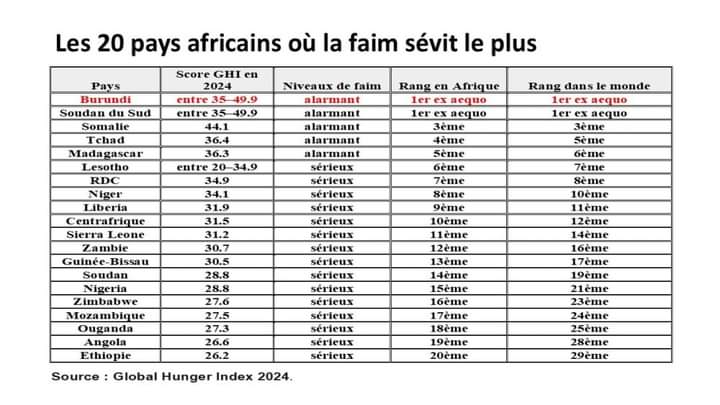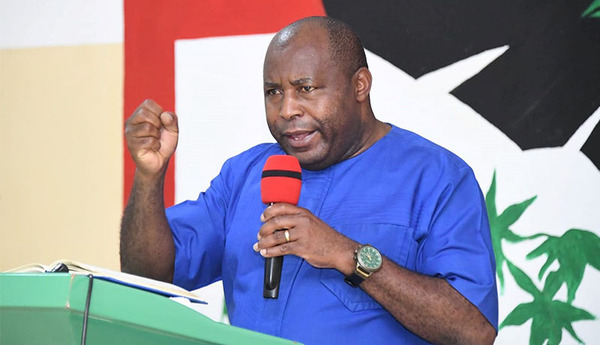Burundi, once again, sadly tops the world ranking of the hungriest countries according to the Global Hunger Index (GHI) 2024. With an alarming score of over 35, the country shares this first place with South Sudan. This overwhelming situation highlights the chronic inability of the Burundian State to meet the food needs of its population, a direct consequence of decades of mismanagement.
Burundi’s economy, historically based on agriculture, is collapsing under the weight of the authorities’ neglect. In 1985, 22% of the national budget was allocated to agriculture.
That figure has dropped to just 8% by 2024, as the population nearly triples from 4.9 million in 1985 to 13.2 million today.
As Burundian economist André Nikwigize points out, this lack of interest in the agricultural sector is one of the main factors explaining the famine ravaging the country.
“Burundi suffers from a total lack of long-term vision on the part of its leaders. Agriculture, the pillar of our economy, has been sacrificed in favor of short-term policies and corruption that is eating away at all spheres of the State,” comments the expert.
Burundian governance is frequently criticized for its inefficiency and nepotism. The management of the country by the CNDD-FDD, the ruling party, is particularly singled out.
Placing incompetent people in strategic positions, solely because of their party loyalty, has led to disastrous decisions for the nation.
Corruption and cronyism have taken precedence over the general interest, leaving a population vulnerable to the food crisis.
Leaders of civil society organizations campaigning for good governance do not hesitate to denounce the inertia of President Évariste Ndayishimiye.
Although he is aware of the challenges facing the country, these organizations stress that the head of state lacks the will or the power to undertake real reforms.
“Instead of setting out clear national guidelines to revive agriculture and restore the economy, the president is content to take unpopular measures, which, in most cases, have no tangible impact on the lives of citizens,” comment these civil society actors, eager to see concrete actions and a break with the bad governance practices that are blocking Burundi’s development.
In addition to poor governance, Burundi is suffering the effects of climate change, as well as internal conflicts which have weakened the country over the past 30 years.
The combination of these factors has exacerbated the country’s food situation, making it one of the most hungry in Africa and the world.
This report from the Global Hunger Index contrasts with the optimistic speeches of Burundian leaders.
According to them, the country even produces food surpluses, intended to help other African nations.
However, the reality is quite different. Burundian households struggle daily to find enough to feed their families, while state officials continue to ignore the gravity of the situation.
The international community, as well as local actors, urge the Burundian government to recognize the crisis and act accordingly.
Only genuine reform, based on transparency, good governance and investment in agriculture, will enable Burundi to emerge from this impasse.
Meanwhile, the Global Hunger Index ranking shames a country once known as the “Land of Milk and Honey,” a symbol now lost.




Leave a Reply